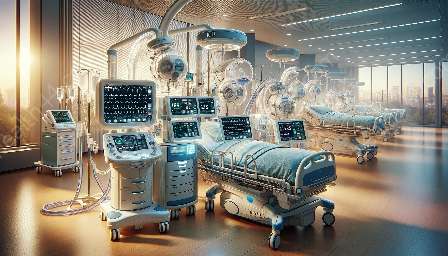When it comes to life support systems and medical devices & equipment, the role of hemofiltration machines is pivotal. In this comprehensive guide, we will explore the innovative technology, mechanisms, applications, and benefits of hemofiltration machines, shedding light on their significant impact on healthcare.
The Technology Behind Hemofiltration Machines
Hemofiltration machines are advanced medical devices designed to support critical care patients by performing the vital function of blood purification. Employing a principle known as convective solute transport, these machines facilitate the removal of toxins, excess fluids, and metabolic waste products from the bloodstream.
Mechanisms of Hemofiltration
The process of hemofiltration involves the continuous replacement of plasma water through a semipermeable membrane, allowing for the removal of unwanted substances while maintaining electrolyte balance. This dynamic filtration mechanism ensures effective detoxification and fluid management in patients with compromised renal function or severe medical conditions.
Applications in Life Support Systems
Hemofiltration machines play a crucial role in life support systems, particularly in the context of critically ill patients with acute kidney injury, sepsis, or other critical care conditions. By providing continuous renal replacement therapy, these machines offer vital support to patients whose kidney function is compromised, helping to stabilize their condition and facilitate the recovery process.
Integration with Medical Devices & Equipment
Integrating seamlessly with modern medical devices and equipment, hemofiltration machines are designed to operate synergistically within the broader framework of life support systems. Their compatibility with advanced monitoring systems, dialysis machines, and extracorporeal circuits underscores their significance as essential components of critical care infrastructure.
Advantages and Benefits
The use of hemofiltration machines offers numerous advantages in clinical practice, including precise fluid management, removal of inflammatory mediators, and enhanced hemodynamic stability. By promoting optimal fluid balance and mitigating systemic inflammation, these machines contribute to improved patient outcomes and enhanced therapeutic interventions.
Conclusion
The evolution of hemofiltration machines represents a significant milestone in the realm of life support systems and medical devices & equipment. Their ability to deliver effective blood purification, fluid management, and critical care support underscores their value as indispensable tools in modern healthcare.


